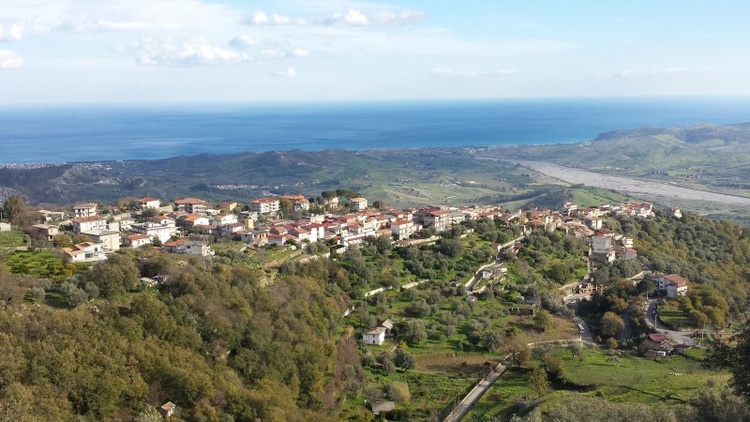Born during World War II in Sant’Agata del Bianco, Calabria, Di Marti was the youngest of four brothers to enter the world, and had a difficult childhood in the aftermath of the war.
His opportunity to attend primary school finally came when he was eight years old.
From when he began schooling, his desire to learn was great and he never missed a lesson until he received his primary school leaving certificate.
Di Marti did not attend high school, but continued to study privately and read whatever he could get his hands on.
He soon began to write poems, lyrics and stories.
He also developed a passion for singing and music.
Di Marti would walk three kilometres twice a week to a nearby town to study music, and later on, pedalled 50 kilometres on a rusty old bike, to study musical composition.
He migrated to Sydney in 1966, when he was 25 years old.
In Sydney, Di Marti hoped to continue his artistic and literary compositions, but this proved difficult.
The demands of work and family life were great.
It wasn’t until he retired at middle age that he was able to finally set himself to work on his compositions, which had been hidden away in the drawer.
Assisted by his beloved wife, Rosa Maluccio, he enrolled in an English-language school, which he attended for 10 years.
Today, Di Marti writes in Italian, English and Calabrian.
He has written more than 160 poems in Italian and just as many in the other two languages.
Un Cuore e Un’Anima is the result of years of hard work and patience.
For continuity and comprehension, the poems are all in Italian.
The book is imbued with love, philosophy and an enormous sense of nostalgia for Calabria, and in particular, Di Marti’s hometown of Sant’Agata:
Di questo peso che mi porto addosso
Vorrei tanto disfarmi ma non posso.
Vorrei smetter di pensarti, terra mia,
Pure le ossa consumerà la nostalgia.
I would like to rid myself
Of the weight that I carry on my shoulders.
I would like to stop thinking of you, my land
Before my bones are consumed by nostalgia.
(Sant’Agata, 142)
Di Marti’s lyrical compositions reflect on the passage of migration from Calabria, and the nature of his land’s people who remain poor, but often content:
La mia Calabria
è terra piena d’amore,
gente di gran cuore
che ama senza domandare.
My Calabria
is a land of love,
of people, with much heart
who love without asking.
(La Mia Calabria, 7)
He considers his unwavering faithfulness to il patrimonio:
Calabria, azzurro cielo, azzurro mare
Quanti figli tuoi hai visto partire.
In giro per il mondo a cercar pane,
Però ti son fedeli come il cane.
Calabria, blue sky, blue sea
How many children have you seen depart.
To circle the world, in search of bread
While remaining faithful to you, like the dog.
(Calabria Cielo Blue, 87)
He reflects on the pain of separation, and the joy of family, and finally, love, which has supported him through his great journey:
Sono così sereno
Quando mi è vicina,
Quasi non mi accorgo
Che il tempo cammina.
I am so serene
When you are close to me
I don’t notice
The time passing.
(Alla mia donna, 211)
In 2000, Di Marti won second prize for his poetry in the Accademia Letteraria Italo-Australiana Scrittori competition.
For a copy of his book or more information, email Domenico Di Marti.












